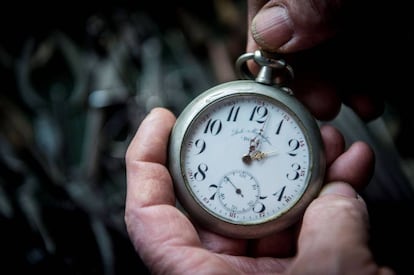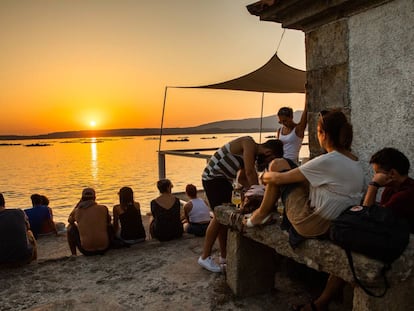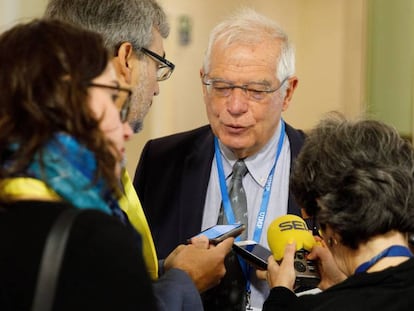Is it the time to reset our watches?
The European Union has proposed an end to the twice-yearly changing of the clocks, but such a measure would be hard to apply ¨C particularly in Spain

The latest Nobel Prize for Medicine was awarded to three researchers who discovered the mechanisms in our body that regulate circadian rhythms. Thanks to their work, we now know that cells in any living thing contain an internal clock that is synchronized with day and night, and that set our vital rhythms. Time schedules are not, then, just a social question ¨C they reside in the very mechanisms of life itself.
That is why the announcement last week by the European Commission, which has proposed that European Union member states no longer change the clocks twice a year, is an important one. In Spain the system has been in place since 1974.
The EC¡¯s proposal comes at a time when the discourse of euroskeptics is accusing Brussels of being disconnected from the people
The EC¡¯s proposal has a political element: it¡¯s a message at a time when the discourse of euroskeptics is accusing Brussels of being disconnected from the people. The idea has emerged after the results of a non-binding poll were published, and which revealed that 84% of EU citizens are opposed to the twice-yearly changing of the clocks.
A total of 4.6 million citizens took part in the poll, the majority of whom were German. It¡¯s a large figure in absolute terms, but very small in relative ones (just 0.89% of the 500 million EU inhabitants participated). But it was the largest participation so far in a vote of this kind.
The people have made their voices heard, but the final decision rests with their representatives
This nod to direct democracy by the EC opens an interesting path, provided it is not abused. What¡¯s more, we mustn¡¯t forget that this is a proposal that has yet to be approved by the European Council ¨C i.e., by the national governments of the member states ¨C and by the European Parliament. The people have made their voices heard, but the final decision rests with their representatives.
Any such change to European timetables will, however, not be easy. The 28 member states need to agree to adopt the same time ¨C the options are staying with winter time, or summer time ¨C because to do otherwise would create problems in terms of transportation and communications, given that it would be more complex to work out the time in another state.
In Spain, either of the two options would prompt confusion at the outset. If the summer timetable is kept, it would get light between 9 and 10am at around Christmas. If the winter timetable is kept, in summer it would get dark between 8.30 and 9pm. The EC¡¯s announcement has once again sparked a debate on whether Spain is on the right time zone or whether it should adopt the time in the Canary Islands, Portugal and the United Kingdom.
This is a good opportunity for an in-depth study into a problem that has long been debated by the public, and to decide whether the peninsula should finally reset its watches.
English version by Simon Hunter.
Tu suscripci¨®n se est¨¢ usando en otro dispositivo
?Quieres a?adir otro usuario a tu suscripci¨®n?
Si contin¨²as leyendo en este dispositivo, no se podr¨¢ leer en el otro.
FlechaTu suscripci¨®n se est¨¢ usando en otro dispositivo y solo puedes acceder a EL PA?S desde un dispositivo a la vez.
Si quieres compartir tu cuenta, cambia tu suscripci¨®n a la modalidad Premium, as¨ª podr¨¢s a?adir otro usuario. Cada uno acceder¨¢ con su propia cuenta de email, lo que os permitir¨¢ personalizar vuestra experiencia en EL PA?S.
?Tienes una suscripci¨®n de empresa? Accede aqu¨ª para contratar m¨¢s cuentas.
En el caso de no saber qui¨¦n est¨¢ usando tu cuenta, te recomendamos cambiar tu contrase?a aqu¨ª.
Si decides continuar compartiendo tu cuenta, este mensaje se mostrar¨¢ en tu dispositivo y en el de la otra persona que est¨¢ usando tu cuenta de forma indefinida, afectando a tu experiencia de lectura. Puedes consultar aqu¨ª los t¨¦rminos y condiciones de la suscripci¨®n digital.










































